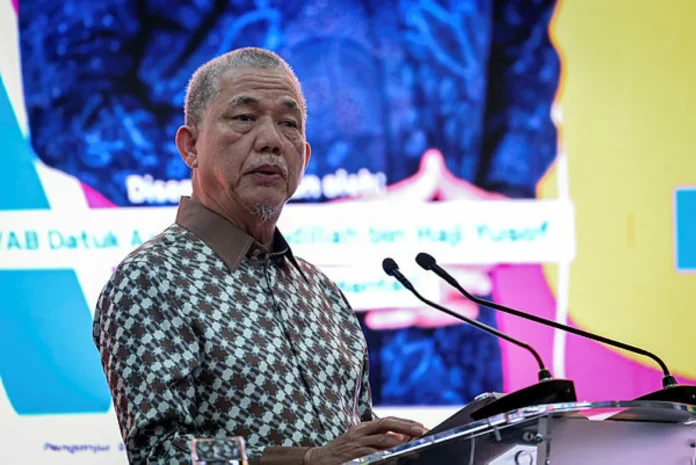Deputy Prime Minister Datuk Seri Fadillah Yusof emphasises cultivating creativity and STEM education to transform Malaysia into active contributors in digital technology revolution.
KUALA LUMPUR: Cultivating a culture of creativity is essential for Malaysia’s digital and technology revolution, according to Deputy Prime Minister Datuk Seri Fadillah Yusof.
He emphasised the need to shift society from passive users to active contributors in shaping technological advancement.
“A creative and innovative nation provides environments and infrastructure that stimulate creativity,” he said at the National Science Week 2025 closing ceremony at the National Science Centre.
ALSO READ: Creativity and technology key to nation’s prosperous future: Raja Muda Perlis
Fadillah stressed that science, technology and innovation programmes must begin in primary education to develop critical thinking skills.
“This culture must be rooted in cultural diversity and involve young people in technology hubs,” he added, mentioning robotics and 3D printing labs as key platforms.
He highlighted research agencies’ exploration of new technologies including hydrogen electricity generation through solid-state technology.
“Beneficial nuclear technologies are already being used in medical, agricultural and food preservation sectors,” Fadillah noted, citing resilient nuclear rice production.
The deputy prime minister reiterated the government’s commitment to developing STEM talent to achieve high-technology nation status by 2030.
He called for continuous efforts from multiple ministries and private partners to strengthen the National STEM Agenda.
“We must produce a generation that embraces science and technology to contribute to national development,” Fadillah stated.
National Science Week 2025 reached nationwide with activities under the theme “Democratising Science, Humanising Technology, Mainstreaming Innovation”.
The programme involved six main locations across 40 parliamentary constituencies and 47 schools.
It featured innovation competitions, technology exhibitions and STEM workshops with 452 educators participating.
Strategic collaborations among 136 government agencies, educational institutions and industry partners ensured continued cultivation of science and innovation.
Implementation of STEM kits and sponsorship programmes increased student interest in STEM to over 80%.
These initiatives strengthened the role of science centres and schools as catalysts for scientific thinking and economic prosperity. – Bernama








